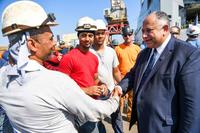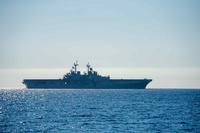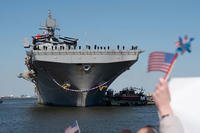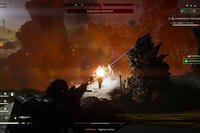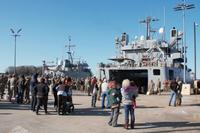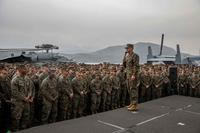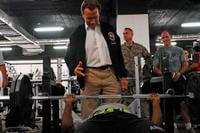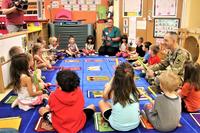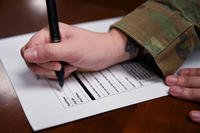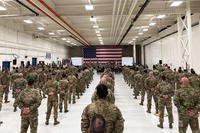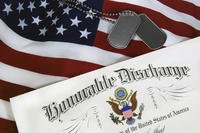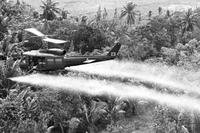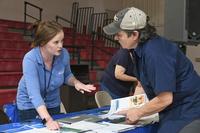Even when deployments are "inside the wire," for many service members they can be "outside the comfort zone."
For Senior Airman Justin Peattie, a ceremonial honor guardsman with the Patriot Honor Guard here, his deployment was just that.
Peattie went to Kandahar Airfield, Afghanistan, to fulfill a joint expeditionary tasking assignment in support of the Army and Navy from May to November 2011. Including training, he was gone for approximately seven months.
"I served as a member of the casualty liaison team, or CLT, at Kandahar," he said. "Our number one focus was to be the eyes and ears on primarily Army patients as they arrived at the Role III hospital."
The Role III Multinational Medical Unit, ran by NATO, intercepted patients as they arrived on medical evacuation aircraft. The term "role" describes the tiers in which medical support is organized, with Role III describing the capabilities of a theater-level hospital, according to the Navy's website.
"Our job was to find out who was coming in, what types of injuries were sustained -- with some being more graphic than others -- and to report what we saw," Peattie said. "We served as the middleman between the Role III and the Department of the Army notification cell."
Peattie, who normally serves as a personnelist, admitted this role was new to him, but embraced how vital it was to the mission.
"I took a lot of pride in this job," he said. "I put myself in their shoes. What would I want to know regardless of the extent of injury, such as missing limbs, amputations, open fractures or massive blood loss? What would my Mom and Dad back home want to know?"
Occasionally, Peattie would even receive calls from parents wanting to know how their son or daughter was doing.
"That part of the job was, in my eyes, one of the toughest," he said.
Peattie also endured other stressors while deployed.
"Rocket attacks were frequent," he said. "There were 98 that I can remember and I had a couple close calls. One went about 15 to 20 feet over my head, but I got to the bunker in time ... It puts you in a different place."
The Airman had an opportunity to be a detainee guard in the operating room as well.
"The detainee was secured to the bed and under sedation, but I was there should he come out of it and get hostile," Peattie said. "I can definitely say that was one of my 'deployment moments' because the surgeons and doctors relied on me to keep them safe while they did their job."
Another unnerving moment was venturing off the base. He and his team went to another hospital ran by Afghan doctors.
"I was pretty nervous," he said. "I don't know how the other services do it."
Peattie explained how they were to visit the civilian hospital in Kandahar City several miles away from the air base and provide assistance. Fortunately, the mission was without incident.
"The humanitarian side was another part of what we did," he said. "Locals, mainly children, would arrive to the Role III for treatment."
Through interpreters, Peattie and the Role III team were able to tell the children they were there to help them.
"They're just like any other kids," he said. "They wanted to play with the toys. They wanted to be taken care of. They wanted to be happy. Hopefully, we made a difference."
Another rewarding part of the job was the friendships formed with joint and coalition partners.
"At the Role III in Kandahar, we had a high number of Navy and Army troops, along with NATO members," Peattie said. "You had Canadians, British, Australians, Dutch and French. We all took pride in what we were doing and I made some really good friends."
Overall, the deployment experience confirmed what noncommissioned officers at his home station told him before he left.
"I've been in the Air Force for almost five years," Peattie said. "I've been stationed at Hanscom the entire time, and this was my first deployment. I finally got to see the big picture.
"I say go to Kandahar and see how it is there," he said. "Being there makes you appreciate what you've got."
Besides appreciation, Peattie left Afghanistan with another feeling.
"I had an overwhelming sense of pride in country and pride in the Air Force," he said. "My team took care of business and there was mutual respect between countries to get the job done."
The experience renewed Peattie's enthusiasm for serving.
"I love serving in the United States Air Force," he said.


